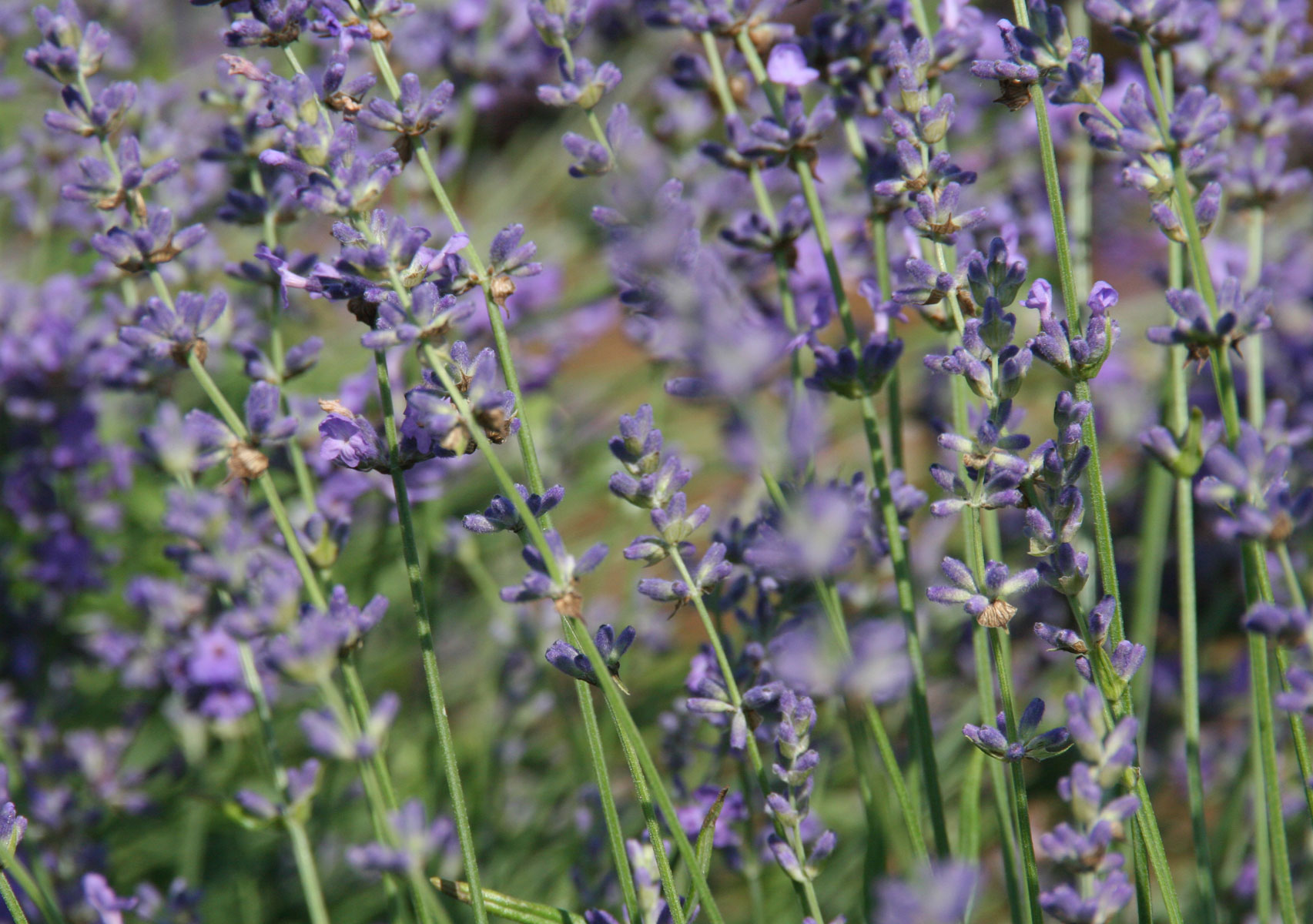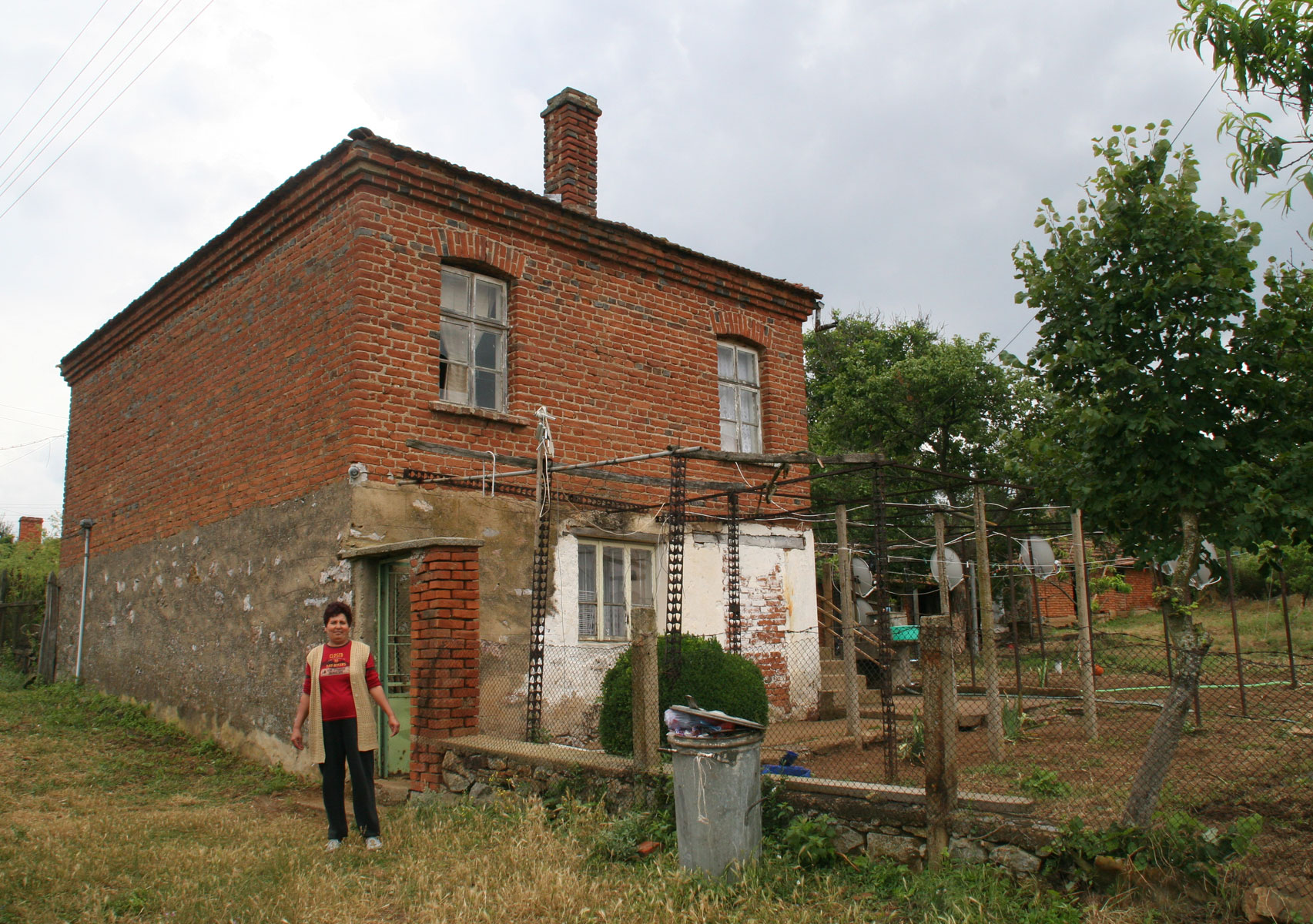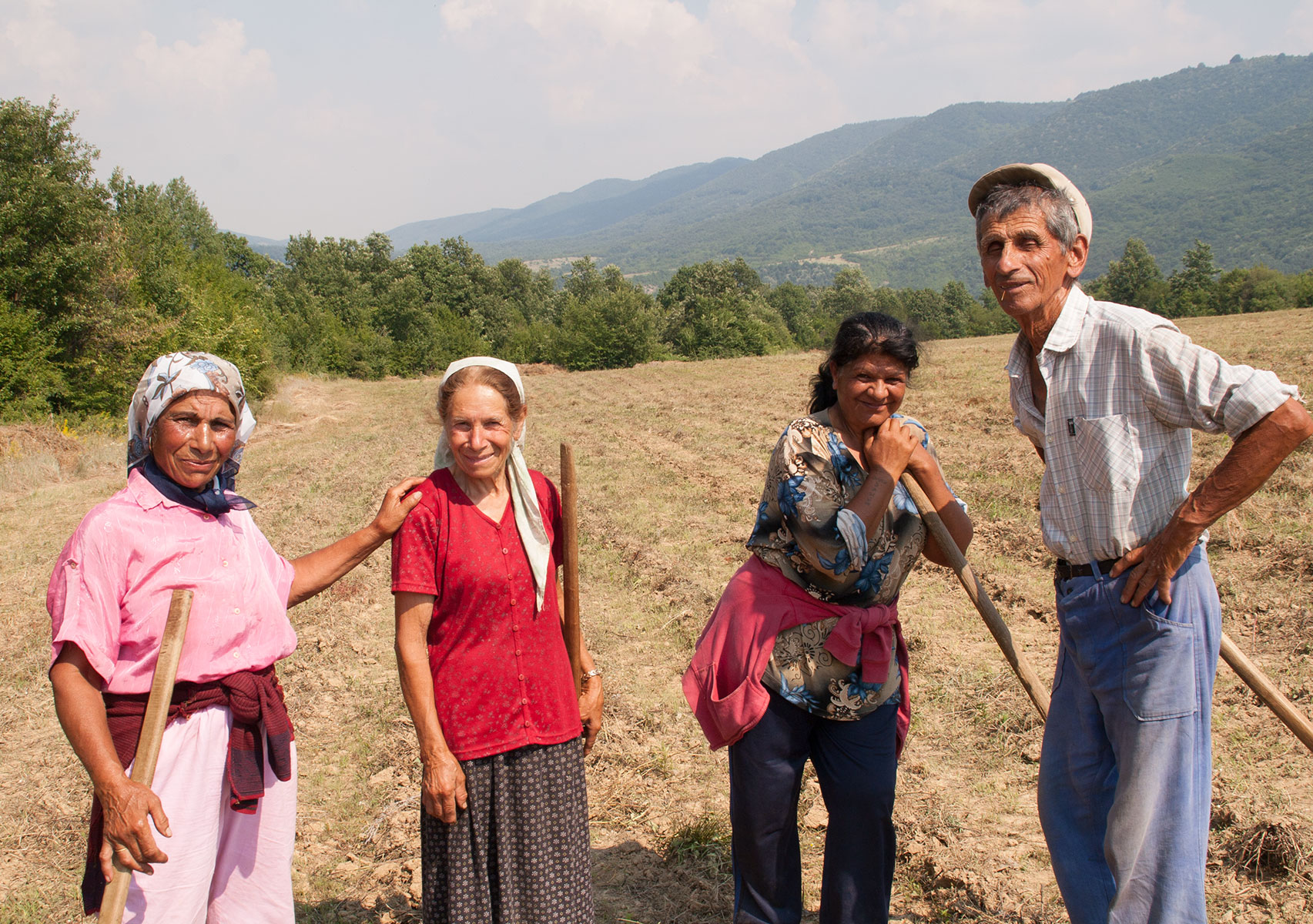Driving through the abandoned country villages of southern Bulgaria in 2006, well over a decade after the fall of the communist regime, the team from Traditional Medicinals (TM) and Traditional Medicinals Foundation (TMF) was disturbed by what they saw. Once vibrant villages had been transformed into ghost towns and almost all of the homes and businesses were left as though their occupants had hoped to return: cups gathered dust on tables, clothes still hung in closets, beds were left unmade and there was no one to tend to the abandoned farms or collect from the abundant fields of wild medicinal plants.
BULGARIA’S TREASURE TROVE OF MEDICINAL PLANTS
What Bulgaria lacks in size, it certainly makes up in biodiversity. About the size of the state of Tennessee, Bulgaria’s topography offers an amazing range of ecosystems and microclimates, from its deep river gorges and mountains to its forests and plains. This variety both in land and temperature creates fertile ground for some 770 plant species, many of which are used medicinally. Although Bulgarians have collected and farmed medicinal plants for centuries, nearly five decades behind the Iron Curtain practically brought small family farming to a halt as the Soviet regime forced farmers to abandon the fields to labor in newly built factories. Years later, with the collapse of Communism in 1989 and a widespread closing of factories, many Bulgarians were forced to leave their ancestral villages for cities in search of work.

Wild Bulgarian Lavender.
A DARK ERA FOR THE ROMANI PEOPLE
The Romani people first migrated to Bulgaria during the 9th century from Afghanistan. Having suffered suspicion and persecution for centuries for their nomadic lifestyle, the Romani eventually settled high in the mountains above rural villages, content to isolate themselves from xenophobia, racism, and violence. During World War II, the mountains served as a welcome haven for escaping the horrors of the Holocaust, and during the decades of Soviet occupation, the Romani remained in the mountains. Fortunately, much has changed in the mindset of Bulgarians since that dark era of Romani history, however, Amnesty International reports that the poverty rate of Bulgaria’s Romani is still four times higher than the rest of the country’s population.
Although the herb trade continued to thrive during the Soviet era through the formation of agricultural cooperatives, two generations of Bulgarians had lost the knowledge of age-old, sustainable farming practices. Longtime herb merchants like the Bakalski family were eager to go back into business for themselves, live off the land, and reinvigorate the economy using an abundant natural resource.
REVITALIZING ABANDONED COMMUNITIES
The southern village of Voden, due east of Plovdiv, was once home to 3,500 villagers. By 2007, only 300 elderly people remained. TMF worked with the Bakalskis and their workforce of mountain Romani people to support their relocation to Voden to farm organic medicinal plants. TM, TMF, and Martin Bauer then joined forces with the Bakalskis to create a partnership that would focus on meeting the needs of the communities. The Bakalski family bought some of Voden’s abandoned homes, TM paid for their renovations, and Martin Bauer invested in herb processing technology. Dozens of Romani people have since replanted their roots in Voden and are transforming abandoned landscapes into resuscitated cultivation areas. Far beyond securing a sustainable source of high-quality herbs, the partnership represents a shared social enterprise that benefits everyone, from the biodiversity of the landscape and the well-being of the workers to the long-term economic viability of rural Bulgaria.
They have replanted their roots and are transforming abandoned landscapes into resuscitated cultivation areas.

An herb collector stands in front of her renovated home.
Today, Romani highlanders are slowly repopulating these ghost towns, bringing their herbal expertise back to the Bulgarian countryside—all while benefitting from newly removed barriers to social empowerment and stable, economic opportunities. Interventions in southern Bulgaria are however still in early stages, and we have only begun to understand the many social challenges facing the Romani people. Traditional Medicinals Foundation will send a team of international community development experts back to Voden to evaluate this early phase, establish monitoring systems, and launch new social interventions in collaboration with the community. We are confident that this initiative will help to demonstrate new social business standards for supply chain equity in rural agricultural communities.

A group of Romani farmers tends to their field.